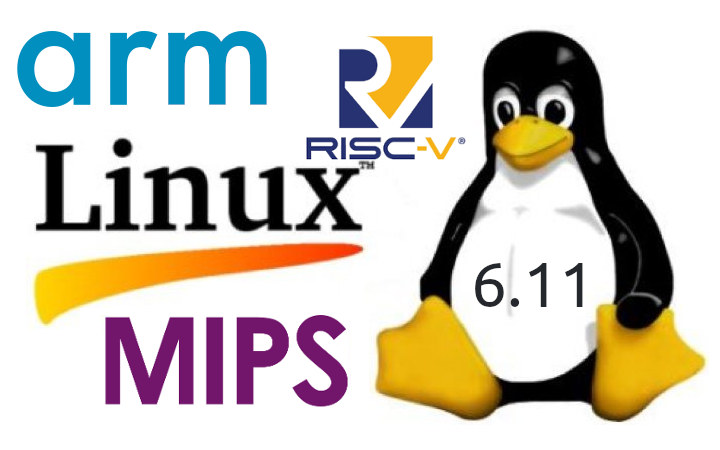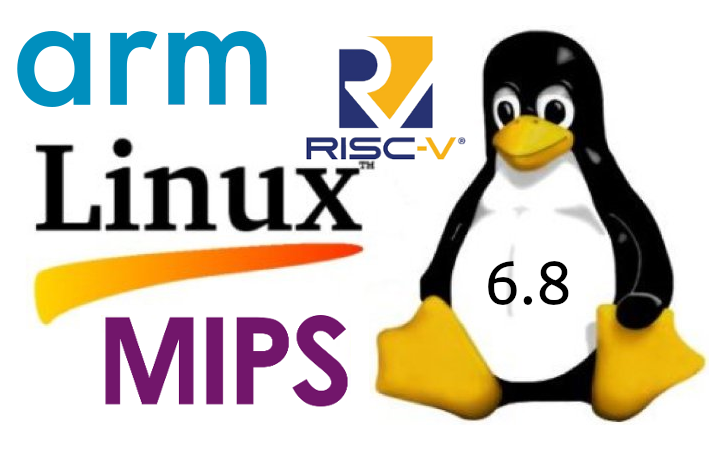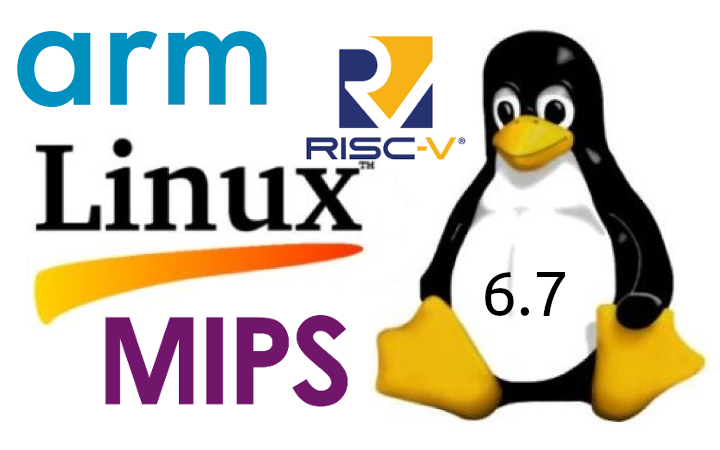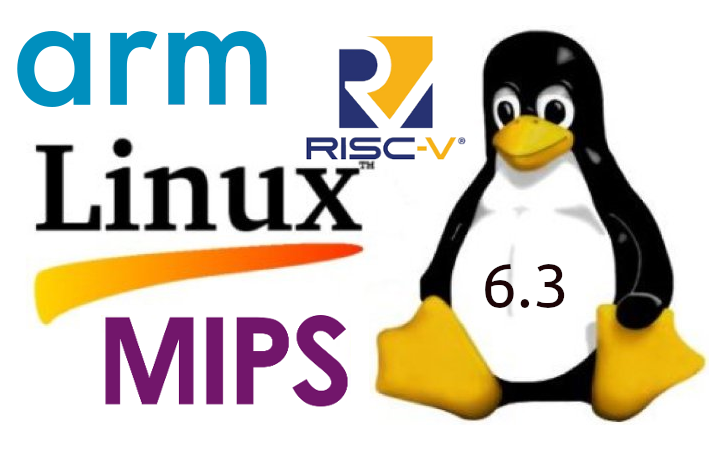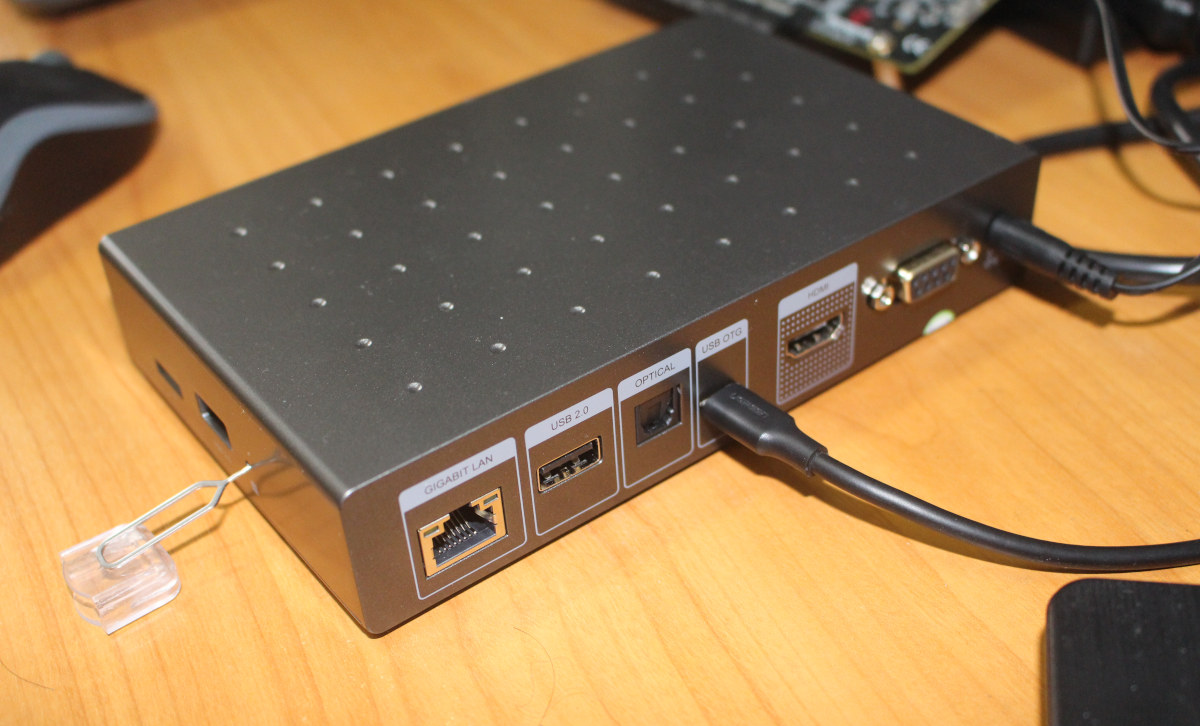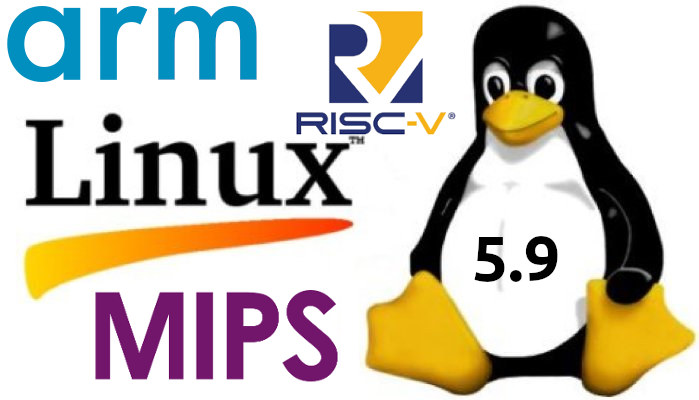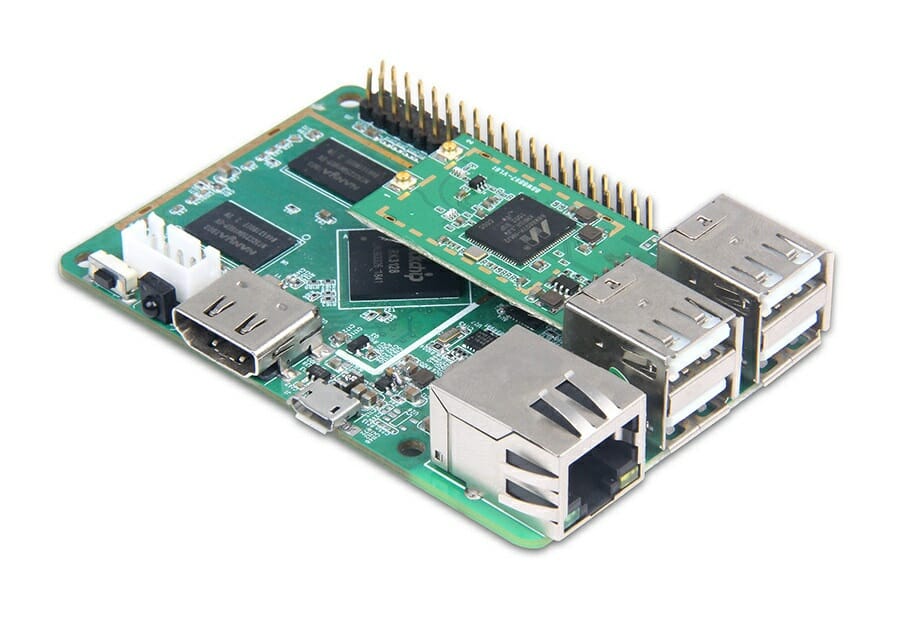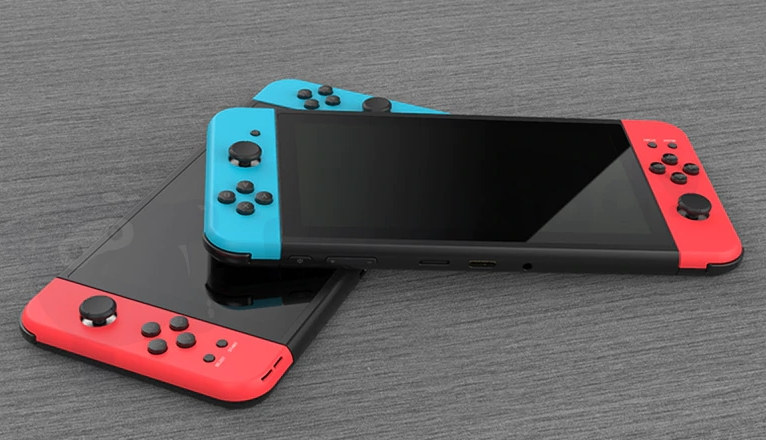Linux 6.11 is out with Linus Torvalds’ announcement on the Linux kernel mailing list (LKML): I’m once again on the road and not in my normal timezone, but it’s Sunday afternoon here in Vienna, and 6.11 is out. The last week was actually pretty quiet and calm, which is nice to see. The shortlog is below for anybody who wants to look at the details, but it really isn’t very many patches, and the patches are all pretty small. Nothing in particular stands out – the biggest patch in here is for Hyper-V Confidential Computing documentation. Anyway, with this, the merge window will obviously open tomorrow, and I already have 40+ pull requests pending. That said, exactly _because_ I’m on the road, it will probably be a fairly slow start to the merge window, since not only am I on my laptop, there’s OSS Europe starting tomorrow and then the […]
Linux 6.8 release – Notable changes, Arm, RISC-V, and MIPS architectures
Linus Torvalds has just announced the release of Linux 6.8 on the Linux kernel mailing list: So it took a bit longer for the commit counts to come down this release than I tend to prefer, but a lot of that seemed to be about various selftest updates (networking in particular) rather than any actual real sign of problems. And the last two weeks have been pretty quiet, so I feel there’s no real reason to delay 6.8. We always have some straggling work, and we’ll end up having some of it pushed to stable rather than hold up the new code. Nothing worrisome enough to keep the regular release schedule from happening. As usual, the shortlog below is just for the last week since rc7, the overall changes in 6.8 are obviously much much bigger. This is not the historically big release that 6.7 was – we seem to […]
Linux 6.7 release – Main changes, Arm, RISC-V, and MIPS architectures
Linus Torvalds has just announced the release of Linux 6.7, following Linux 6.6 LTS a little over two months ago: So we had a little bit more going on last week compared to the holiday week before that, but certainly not enough to make me think we’d want to delay this any further. End result: 6.7 is (in number of commits: over 17k non-merge commits, with 1k+ merges) one of the largest kernel releases we’ve ever had, but the extra rc8 week was purely due to timing with the holidays, not about any difficulties with the larger release. The main changes this last week were a few DRM updates (mainly fixes for new hw enablement in this version – both amd and nouveau), some more bcachefs fixes (and bcachefs is obviously new to 6.7 and one of the reasons for the large number of commits), and then a few random […]
Linux 6.3 release – Notable changes, Arm, RISC-V and MIPS architectures
Linux Torvalds has just announced the release of Linux 6.3 on the Linux Kernel Mailing List (LKML): It’s been a calm release this time around, and the last week was really no different. So here we are, right on schedule, with the 6.3 release out and ready for your enjoyment. That doesn’t mean that something nasty couldn’t have been lurking all these weeks, of course, but let’s just take things at face value and hope it all means that everything is fine, and it really was a nice controlled release cycle. It happens. This also obviously means the merge window for 6.4 will open tomorrow. I already have two dozen pull requests waiting for me to start doing my pulls, and I appreciate it. I expect I’ll have even more when I wake up tomorrow. But in the meantime, let’s enjoy (and test) the 6.3 release. As always, the shortlog […]
How to flash firmware to Rockchip devices in Windows and Linux (2021 Edition)
We’ve written several articles detailing methods to flash firmware to Rockchip devices in Windows or Linux over the years, with tools like RKAndroidTool, RkFlashKit, upgrade_tool, or the open-source rkdeveloptool utility. This is mostly useful to flash another OS or if the device does not boot, as most products will now support OTA firmware updates. But following my review of Zidoo M6 with Android 11, I’ve now got a Linux image for the Rockchip RK3566 mini PC, so let’s revisit the firmware flashing methods in 2021. Zidoo sent me instructions for Windows, but since I’m a Ubuntu user, I flashed the firmware with the Linux tools used by Firefly. The same methods should work for the older processors such as RK3066, RK3288, and RK3399, besides the more recent Rockchip RK3566 and RK3568 processors. How to flash Rockchip firmware in Linux [Important update: If your device comes with both eMMC flash and […]
Linux 5.9 Release – Main Changes, Arm, MIPS & RISC-V Architectures
Linus Torvalds has just announced the release of Linux 5.9 on lkml: Ok, so I’ll be honest – I had hoped for quite a bit fewer changes this last week, but at the same time there doesn’t really seem to be anything particularly scary in here. It’s just more commits and more lines changed than I would have wished for. The bulk of this is the networking fixes that I already mentioned as being pending in the rc8 release notes last weekend. In fact, about half the patch (and probably more of the number of commits) is from the networking stuff (both drivers and elsewhere). Outside of that, the most visible thing is a reinstatement of the fbdev amba-clcd driver – that’s a noticeable patch, but it’s basically just mainly a revert. The rest is really really tiny (mostly some other minor driver updates, but some filesystem and architecture fixes […]
Geniatech XPI 3128 RK3128 SBC is Equipped with an NXP WIFi 5 Module
Geniatech XPI family of single board computers was first introduced in 2018 with the launch of the XPI-S905X development board following many of Raspberry Pi 3 Model B features and form factor. The company has now added another board to the family with XPI 3128 single board computer powered by a Rockchip RK3128 quad-core Cortex-A7 processor coupled with up to 2 GB RAM and 64 GB flash, as well as an NXP WiFi 5 and Bluetooth 4.2 module. Geniatech XPI 3128 specifications: SoC – Rockchip RK3128 quad-core Cortex-A7 processor @ up to 1.2GHz GPU with Arm Mali 400 MP2 GPU (See datasheet) System Memory – 512MB DDR3L (1GB, 2GB optional) Storage – 8GB flash (16GB, 32GB, 64GB optional), and MicroSD card slot Video Output – HDMI up to 1080p60 Video – 1080p60 H.264/H.265 video decoding Connectivity 10/100M Ethernet port Dual-band 802.11b/g/n/ac WiFi 5 and Bluetooth 4.2 via Marvell/NXP 88W8897 module, […]
Powkiddy X2 is a Low-End Nintendo Switch Lookalike
Powkiddy specializes in handheld gaming consoles, and if their latest Powkiddy X2 portable game console looks familiar, it’s because it looks just like a Nintendo Switch. But the comparison stops there. The NVIDIA processor is replaced by a quad-core Cortex-A7 processor, the display has a lower resolution, the controllers aren’t detachable, and unsurprisingly you can’t play any Nintendo Switch games. Powkiddy X2 specification: SoC – Quad-core Cortex-A7 processor @ 1.3 GHz (possibly Rockchip RK3128) System Memory – TBD Storage – TBD flash storage, MicroSD card slot Display – 7″ IPS display with 1024×600 resolution Video Output – Mini HDMI output Audio – 3.5mm audio jack; speaker(s); MP3/MP4 audio playback USB – 2x Micro USB port to connect external gamepads User input – 2x rockers, 2x D-PADs, select and start keys, function key, L&R; power & reset keys, volume control Battery – 3,000 mAh The console is said to come with […]


